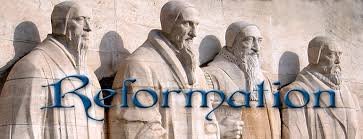Religion has always played a profound role in shaping societies, cultures, and individual identities. Islam, with over a billion followers worldwide, is no exception. However, in today’s rapidly changing world, the question arises: Does Islam, as traditionally interpreted, fit seamlessly into modern society? Many critics argue that certain scriptures and interpretations within Islam have been linked to violence and extremism, raising concerns about its compatibility with contemporary values such as human rights, gender equality, and secular governance.
Moreover, certain social practices rooted in conservative interpretations—such as restrictions on women’s rights, freedom of expression, and religious tolerance—clash with modern ideals. These issues are not unique to Islam but are often highlighted because of the religion’s global visibility and the geopolitical tensions surrounding it.
For Islam to thrive in the 21st century, a thoughtful reform is necessary. This does not mean abandoning core beliefs but rather contextualising teachings to reflect modern realities. Embracing pluralism, gender equality, and peaceful coexistence can help bridge the gap between tradition and modernity.
In conclusion, while Islam faces undeniable challenges in fitting into modern society, it also holds the potential for meaningful reform. Encouraging reinterpretation and progressive thought can help the religion shed associations with violence and intolerance, making it a force for peace and unity in the contemporary world. The future of Islam depends on its ability to adapt thoughtfully and inclusively—something that benefits not only Muslims but all of humanity.
The Challenges
It is undeniable that some passages in Islamic texts have been interpreted in ways that incite violence or justify harsh punishments. Over the decades, extremist groups have often cited these scriptures to legitimise acts of terror, fueling global fears and misunderstandings about the religion as a whole. This association has led many to question whether Islam, in its current traditional form, can coexist peacefully within pluralistic, democratic societies.Moreover, certain social practices rooted in conservative interpretations—such as restrictions on women’s rights, freedom of expression, and religious tolerance—clash with modern ideals. These issues are not unique to Islam but are often highlighted because of the religion’s global visibility and the geopolitical tensions surrounding it.
A Call for Reform
Despite these challenges, it is crucial to recognise that Islam is not monolithic. There is a rich history of diverse interpretations and progressive thought within the Muslim world. Many scholars and communities advocate for ijtihad—independent reasoning—to reinterpret scriptures in ways that align with contemporary ethics and human rights.For Islam to thrive in the 21st century, a thoughtful reform is necessary. This does not mean abandoning core beliefs but rather contextualising teachings to reflect modern realities. Embracing pluralism, gender equality, and peaceful coexistence can help bridge the gap between tradition and modernity.
Why Reform Matters
Religious reform is not new; Christianity, Judaism, and other faiths have undergone significant transformations to stay relevant and compassionate in changing times. Islam’s rich intellectual tradition provides a foundation for similar evolution. Reform can empower Muslim communities to reject extremism, promote social justice, and contribute positively to global society.Encouraging Open Dialogue
It is essential to foster open, respectful conversations within and outside Muslim communities about these issues. Criticism should be constructive, aiming to support positive change rather than alienate believers. By encouraging education, critical thinking, and empathy, we can help Islam evolve in a way that honours its spiritual heritage while embracing the values of the modern world.In conclusion, while Islam faces undeniable challenges in fitting into modern society, it also holds the potential for meaningful reform. Encouraging reinterpretation and progressive thought can help the religion shed associations with violence and intolerance, making it a force for peace and unity in the contemporary world. The future of Islam depends on its ability to adapt thoughtfully and inclusively—something that benefits not only Muslims but all of humanity.

